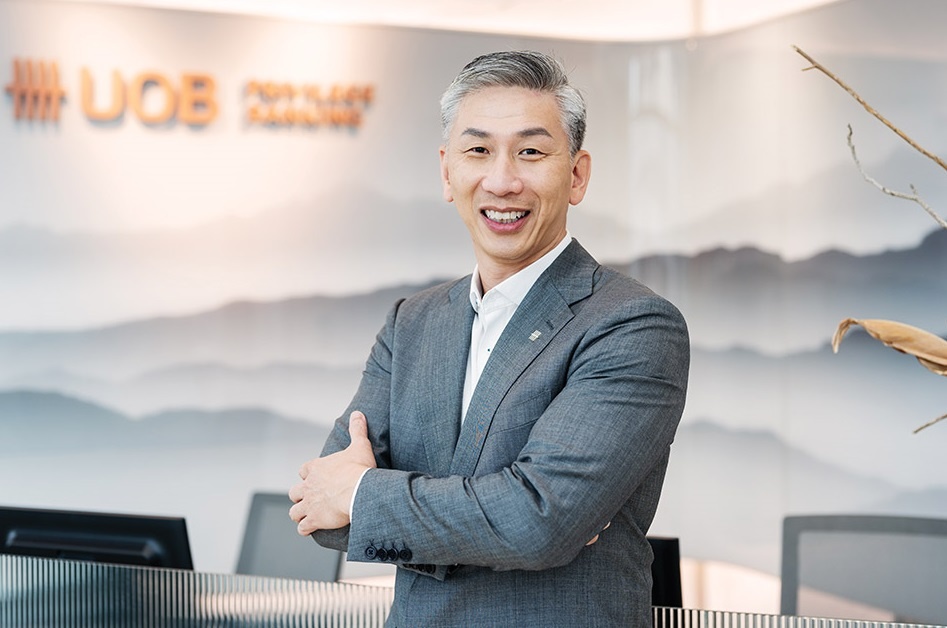Driving ASEAN’s supply chains through connectivity
How does UOB evaluate the commitment and cohesion among ASEAN countries in supporting each other to attract foreign-invested projects in to the region, especially for the green financial resource?
UOB is strategically positioned to support business operations across Greater China as well as throughout ASEAN. The bank aids businesses expanding into key markets like Singapore, Vietnam, Thailand, and Indonesia. UOB’s strategy is built around connectivity, digitalisation, and sustainability.
 |
| Leong Yung Chee, head of Group Corporate Banking at UOB |
One area in need of attention is the digital and green economies. Many current cooperation agreements do not adequately address these emerging trends. While the digital economic framework is a positive step towards tackling these issues, there is still substantial work to be done by ASEAN to create a more comprehensive digital and green economy partnership.
When it comes to foreign direct investment into ASEAN, many member countries have developed unique competitive advantages. Vietnam, with a highly integrated workforce of 55 million, has seen rapid growth in high manufacturing sectors, fast-moving consumer goods, textiles, and electronics. Companies like Apple and Samsung have built significant operations in Vietnam, serving global markets and exemplifying the country’s industrial prowess.
With the differences in both political and economic spheres between ASEAN countries, how challenging does UOB face when promoting a connected region?
Different countries within the ASEAN region are governed by distinct regulations, currency controls, cultural values, and business practices, making it a highly challenging environment. This is where UOB finds its unique advantage.
In Malaysia and Indonesia, UOB operates more branches than the foreign banks there combined. Despite their global reach, these international banks cannot match our local presence. Similarly, local banks in our key regional markets cannot equal our expansive regional network.
This places us in a unique position, where UOB does not directly compete with global banks because they cannot reach us, nor with local banks because they cannot replicate our regional scale.
As a regional bank with a significant ASEAN footprint, we have been present in Vietnam for over 30 years, in Malaysia for more than 70 years, in Thailand for over 25 years, and in Indonesia for over 50 years. UOB’s long-standing presence, combined with our developed systems and capabilities, allows us to operate as a unified bank across ASEAN.
This gives us a competitive advantage in funding costs within Southeast Asia, which international banks with regional footprints cannot match.
Are there any sectors in Vietnam that UOB is monitoring more closely than others due to specific concerns or significant growth?
People often discuss commercial real estate in somewhat negative terms, and while this is partially true, it is important to provide context. As real estate prices fall, businesses can now negotiate lower rents, effectively reducing their operating costs.
So, while falling property values are undoubtedly bad for landlords and the banks that finance them, it creates opportunities for businesses to renegotiate rents and lower their business expenses. From our perspective, if investors finance these businesses, they are in a favourable position as well.
In Vietnam, the overall economic outlook is still very good with the country’s projecting GDP growth of 6 - 6.5 per cent, the highest in ASEAN markets. Even with challenges in the real estate sector, Vietnam’s future growth prospects are promising.
 | Helping small businesses to support global supply chains The lack of credit for small- and medium-sized enterprises to participate in global trade is stifling growth and making supply chains more vulnerable. |
 | Walmart deepens ties with Vietnam to strengthen supply chains On its quest for robust and innovative suppliers, Walmart is honing its focus on Vietnam as a pivotal market in its strategic roadmap. |
 | Foundations are firm for supply chains Leaders of multinational companies face unprecedented uncertainty in shaping their supply chain strategies and reconfiguring network footprints in response to global geopolitical upheaval. |
What the stars mean:
★ Poor ★ ★ Promising ★★★ Good ★★★★ Very good ★★★★★ Exceptional
Related Contents
Latest News
More News
- Private capital funds as cornerstone of IFC plans (February 20, 2026 | 14:38)
- Priorities for building credibility and momentum within Vietnamese IFCs (February 20, 2026 | 14:29)
- How Hong Kong can bridge critical financial centre gaps (February 20, 2026 | 14:22)
- All global experiences useful for Vietnam’s international financial hub (February 20, 2026 | 14:16)
- Raised ties reaffirm strategic trust (February 20, 2026 | 14:06)
- Sustained growth can translate into income gains (February 19, 2026 | 18:55)
- The vision to maintain a stable monetary policy (February 19, 2026 | 08:50)
- Banking sector faces data governance hurdles in AI transition (February 19, 2026 | 08:00)
- AI leading to shift in banking roles (February 18, 2026 | 19:54)
- Digital banking enters season of transformation (February 16, 2026 | 09:00)

 Tag:
Tag:


















 Mobile Version
Mobile Version